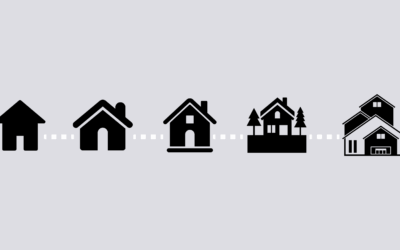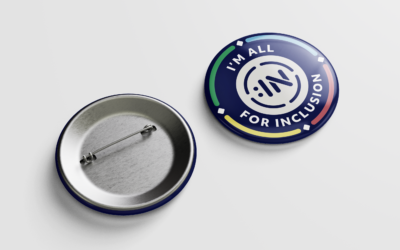Idara Ekpoh is a Nigerian-American portrait photographer whose art is centered around celebrating Black women and their stories. She focuses on creating captivating visual experiences through her dreamlike and cinematic portraits. Idara has been able to utilize photography as a medium to not only tell her own story through self-portraiture, but to empower and bring visibility to the voices and stories of those within her community.
Idara is part of the Black Women Photographers community — a resource that unifies Black women and helps them find work within the photography industry, founded by Polly Irungu.
Hi Idara! Tell us a little about yourself — when did you first become interested in photography and how did you get to where you are today?
I’ve been shooting for about 5 years. I started out by taking graduation photos for a few of my friends on campus during my senior year at college. Over time, I developed a love for storytelling through photography and wanting to capture the beauty that I see around me.
When I went home to Akwa Ibom State, Nigeria for the first time as an adult in 2018, I was especially inspired to shoot. I traveled with my camera, with a goal of capturing the essence and vibrancy of my family and culture. I took photos of almost everything I saw — from activities happening in the streets to portraits of my grandmothers, who I hadn’t seen in years.
Through these photos, I was able to share my culture with the world. Since that time, my mission with photography has been to create art that celebrates dynamism and tells the stories of my community and culture.
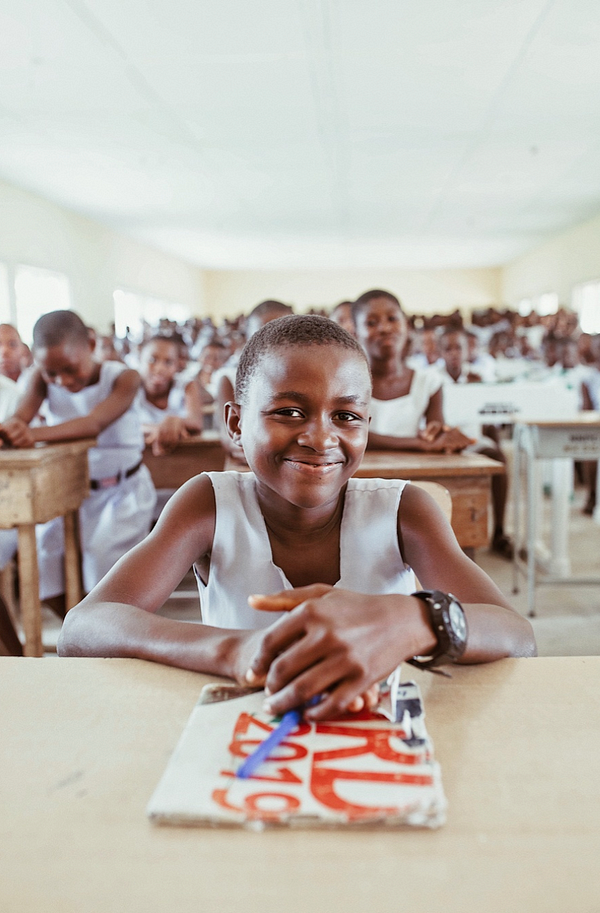
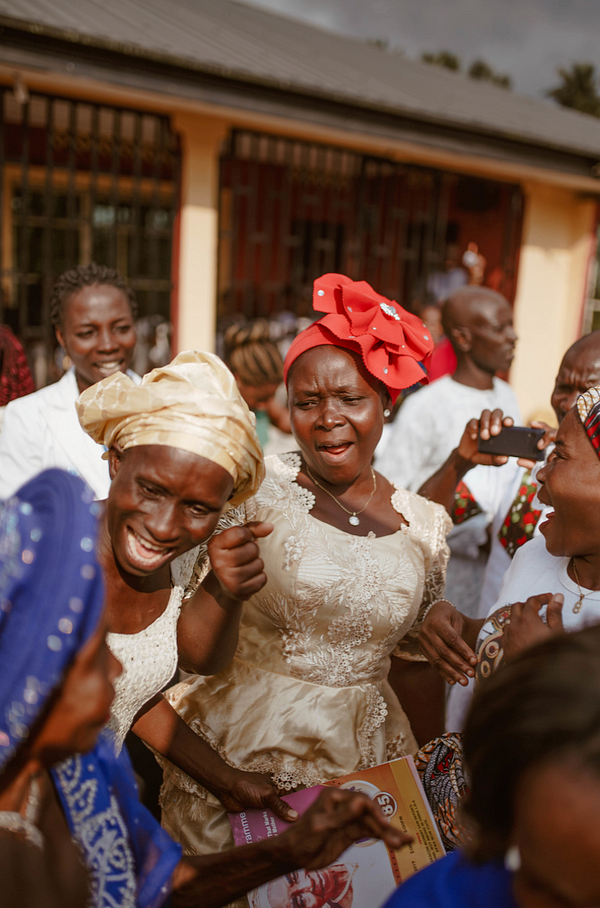
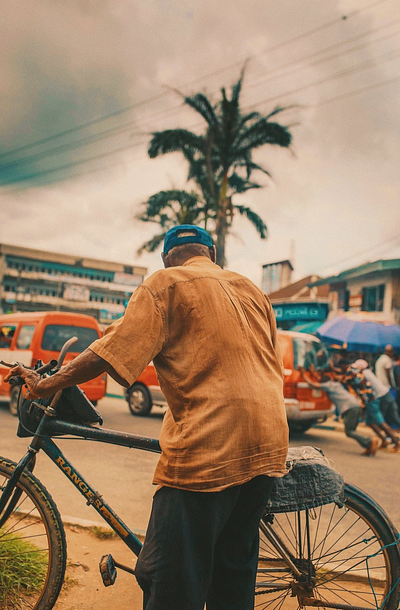
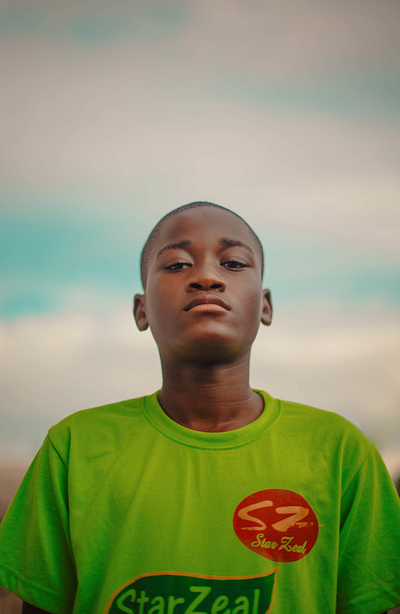
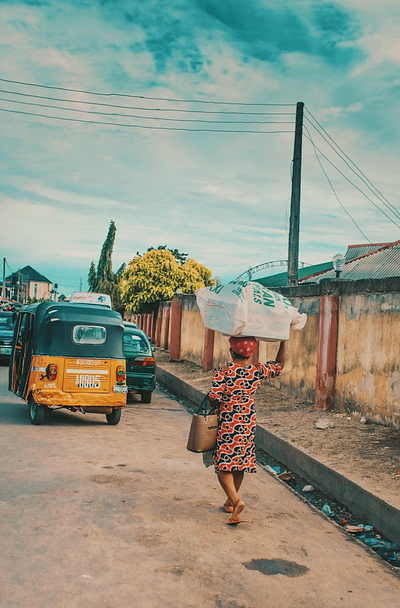
You launched an amazing self-portrait project called “Self Portrait Sunday” in 2020. What inspired you to start this project and what have you learned along the way?
When I initially started Self Portrait Sunday, I was simply looking for a way to get myself up and dressed at least once a week. I’m used to getting dressed for my day and I wasn’t able to do that with the the pandemic. I found myself wearing pajamas every day and after a while, that was starting to have an impact on how I was feeling.
As I continued the project, it became more of an opportunity for me to explore my creativity and identity. As I wasn’t able to shoot with other people, the only choice I had to keep my creative juices flowing was to photograph myself. This project has also allowed me to bring some of my ideas to life that I previously had not explored.
I’ve learned that this project has had more of a personal impact on me than anything else. To take portraits of yourself every week, you have to be vulnerable. As a photographer, I’m always taking photos of other people but never of myself. The things you’re insecure about come out and you have to learn to love them. This project has brought me a lot of self love over the months.
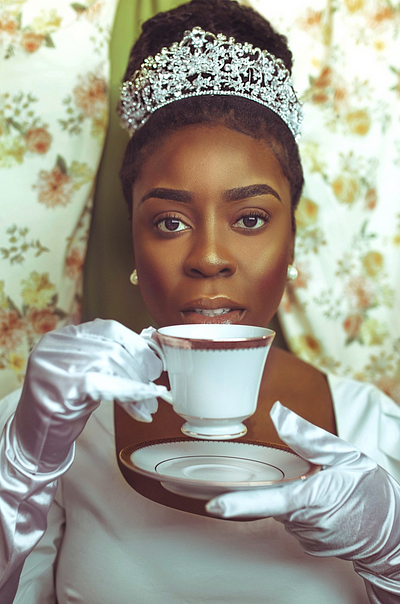
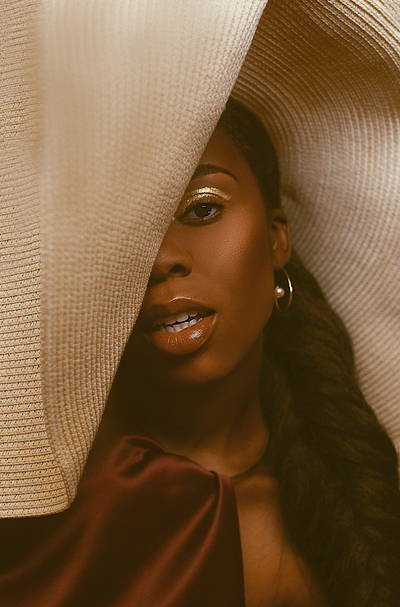
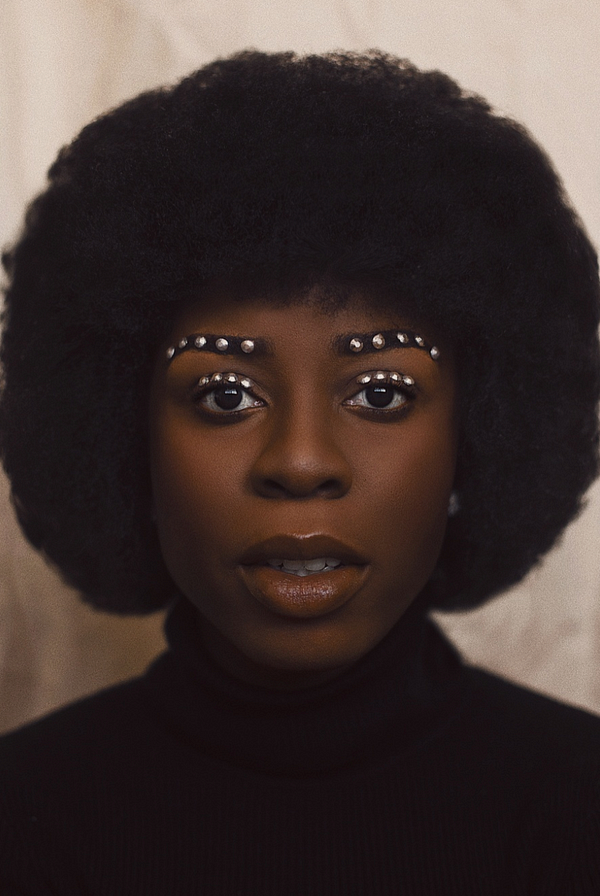
These self portraits are stunning and each very unique from the other. Walk us through your process of creating and putting together a shoot. What tools do you use to create your images?
For my Sunday self portrait sessions, I have an idea of what I want to shoot and a concept from something that inspired me that week — it could be a TV show, something I read, or simply colors that inspired me. Once I’ve decided what I want to shoot, I choose which colors I want to incorporate in the creative direction that will help tell the overall story of the portrait. I’ve taken time to learn and understand color theory and how specific colors work together in harmony to create a visual experience for my viewers.
On Sunday, I check out YouTube videos and tutorials for the specific hairstyle I have in mind for that portrait. Once I’ve completed my hair, I move on to the makeup and wardrobe that I’ve chosen for that shoot.
Next, I create the set. Every single portrait of mine is shot in my bedroom with natural light from an open window that faces me straight on. I set up my backdrop stand, hang any fabrics I planned to use as my backdrop and then set up my camera on a tripod. Once all of that is complete, all that is left for me to do is shoot.
While I’m shooting, I have music playing to help me get into my best mood — because what’s a good shoot without good music?
From that point, I shoot until I get a portrait that I love and then edit that photo in Adobe Lightroom & Photoshop.
Once everything is done and I love the portrait, I’ll post it on Instagram.
Can you share 5 tips for creating self-portraits?
Tip #1: Have confidence going into shooting. The best part of the self portrait process for me is that it increases my overall confidence. When I feel the best, that feeling shines through my photos.
Tip #2: Determine your why. For any personal project, it’s important to determine your why. What is the purpose behind the project and what do you receive from it? Once you are able to answer that question, it’ll keep you grounded in that work.
Tip #3: Have fun! Personal projects are great because you get to set the rules and you can determine what you want to do and what you don’t want to do. There is zero stress and you can be as flexible as you want.
Tip #4: Have your idea determined in advance. You don’t need to have every detail planned out, but it is important to figure out what inspires you and keep it in mind while you shoot that project.
Tip #5: Make time to create and work on a personal project. Create the work that you want to create. While personal projects should be intrinsically satisfying and inspiring for yourself, often times personal projects will bring you paid work in the future. You never know who will want to hire you for your unique voice.
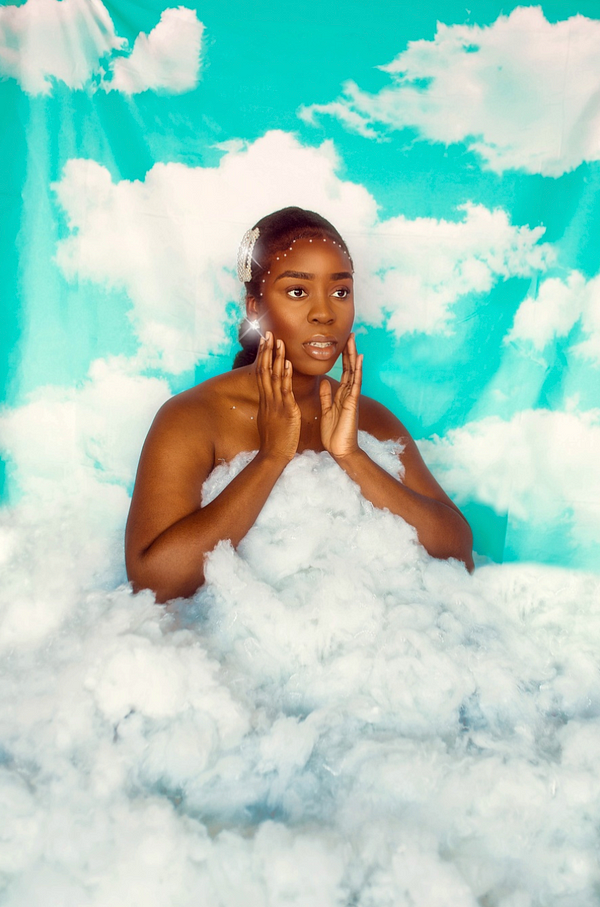
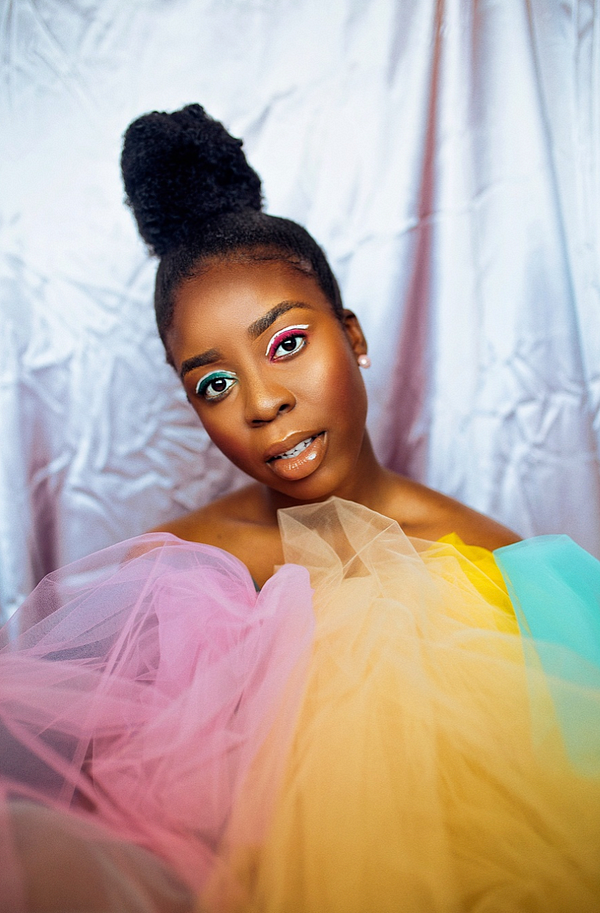
Prior to the COVID-19 pandemic you started a beautiful project, “An Ode to Black Women.” What are the goals for this project and what inspired you to create it?
The goal of An Ode to Black Women was to showcase the many expressions of Black women. You see joy. You see weariness. You see pride. You see hope. You see sensuality. Blackness is not a monolith and I wanted to capture the diversity, while also simply celebrating Black women.
I used tulle fabric in the project because tulle graces the wind and represents freedom. The color blue was used throughout the project because it is a color that emotes calmness — and I see that Black women carry that same serenity. I wanted to capture that.
I reached out to some friends and we created magic together. I also loved that there is a video for this project. My friend, Makayla Nicole, is a very talented cinematographer. To have her capture the women helped push the purpose of the project further.
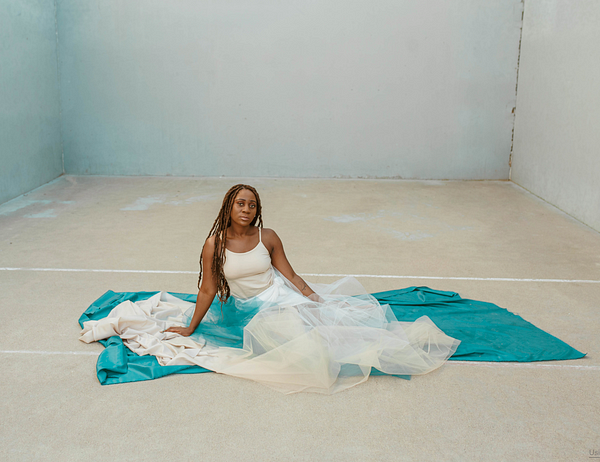
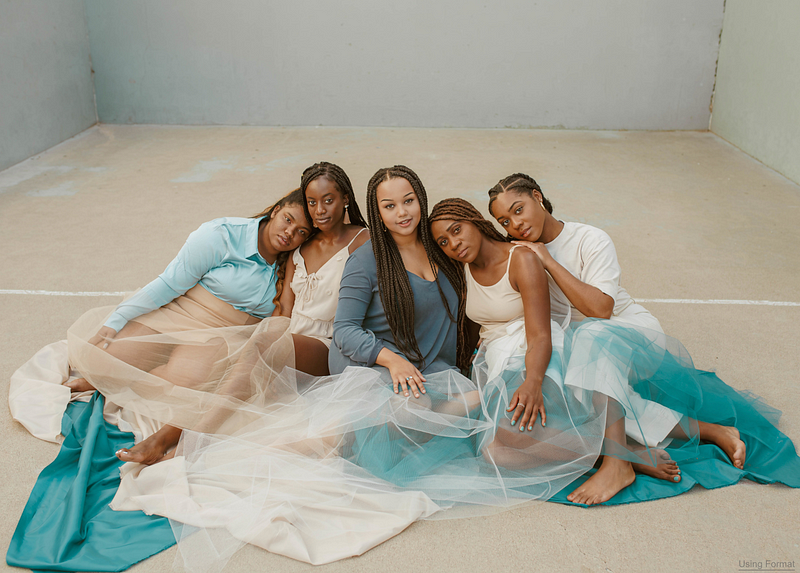
What are your thoughts on the power and importance of positive visual representations in media for underrepresented communities?
Representation Matters.
There is currently a lot of positive representation of dark skin Black women that I wish I saw while growing up. When you see someone that looks like you and looks beautiful in their dark skin or with their natural hair, you start to appreciate those aspects of yourself more. That’s how it was for me.
Representation matters because I was a little Black girl that needed to see representation of beautiful Black women…so now I believe I have a responsibility as a photographer to capture that.
What do you believe is one of the best attributes that you bring to your photography?
I love to connect with my subjects. I think that when I connect with them, their essence shines through in the photo.
I love to get to know my subjects and take time to ensure they feel comfortable. During my shoots, I am my subject’s biggest hype woman. I want them to feel their best so it comes through in the image. When I show my clients the photos and they say “Wow, is that me?” or “You make me look beautiful” and I tell them that I can’t do that. I can’t create what doesn’t exist. I can’t capture beauty that doesn’t already exist. I am just here to capture what’s already there.
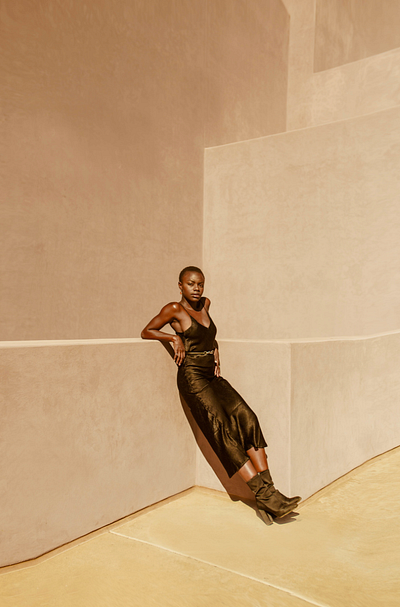
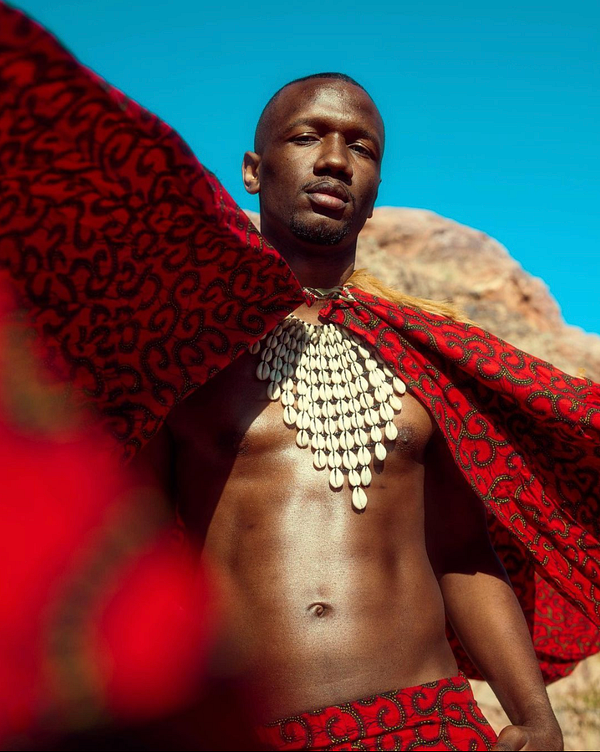
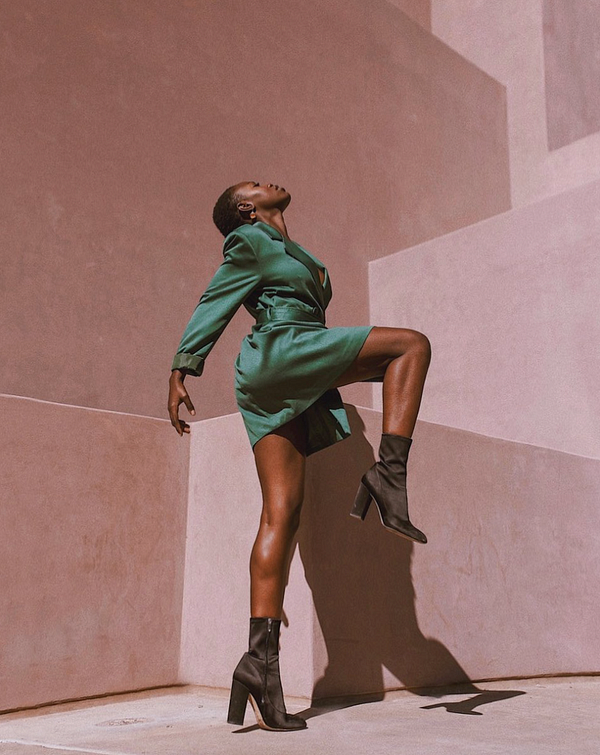
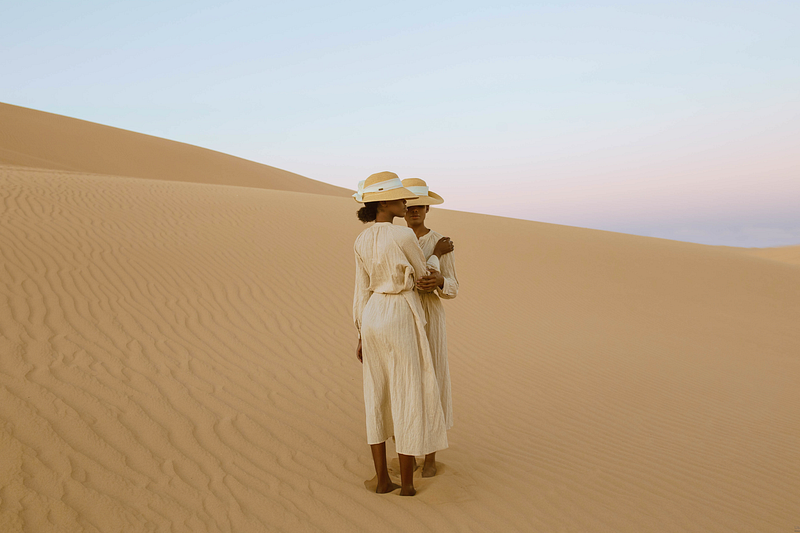
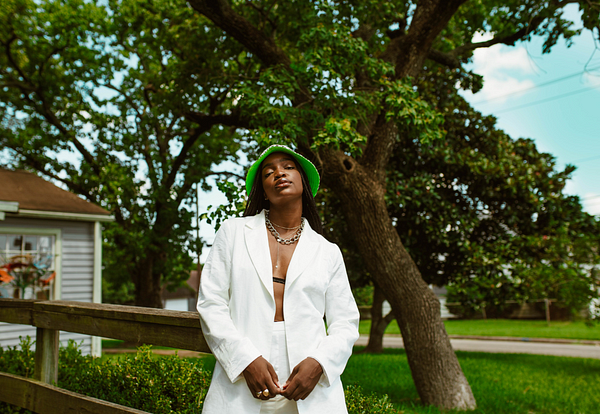
What advice would you give to photographers who are trying to find their visual voice?
The biggest piece of advice I can give is for them to follow photographers that they like and see what it is that they love about their work. The goal isn’t to copy, but you can find a way to do what inspires you in a way that works best for you.
I also say that the biggest thing that you can do is shoot. Keep shooting whenever you get the chance. Practice literally makes perfect, so the more you shoot, the better you will get. With time, everything will fall into place. When I started shooting, I was just taking grad photos and with time, I grew into a storyteller. That comes with time and practice. Just keep shooting and that visual voice will come.
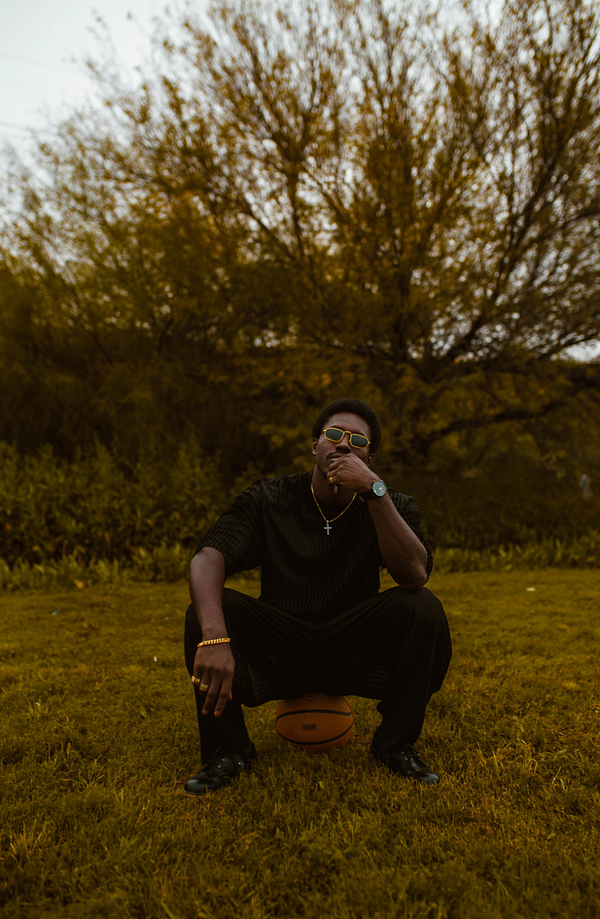
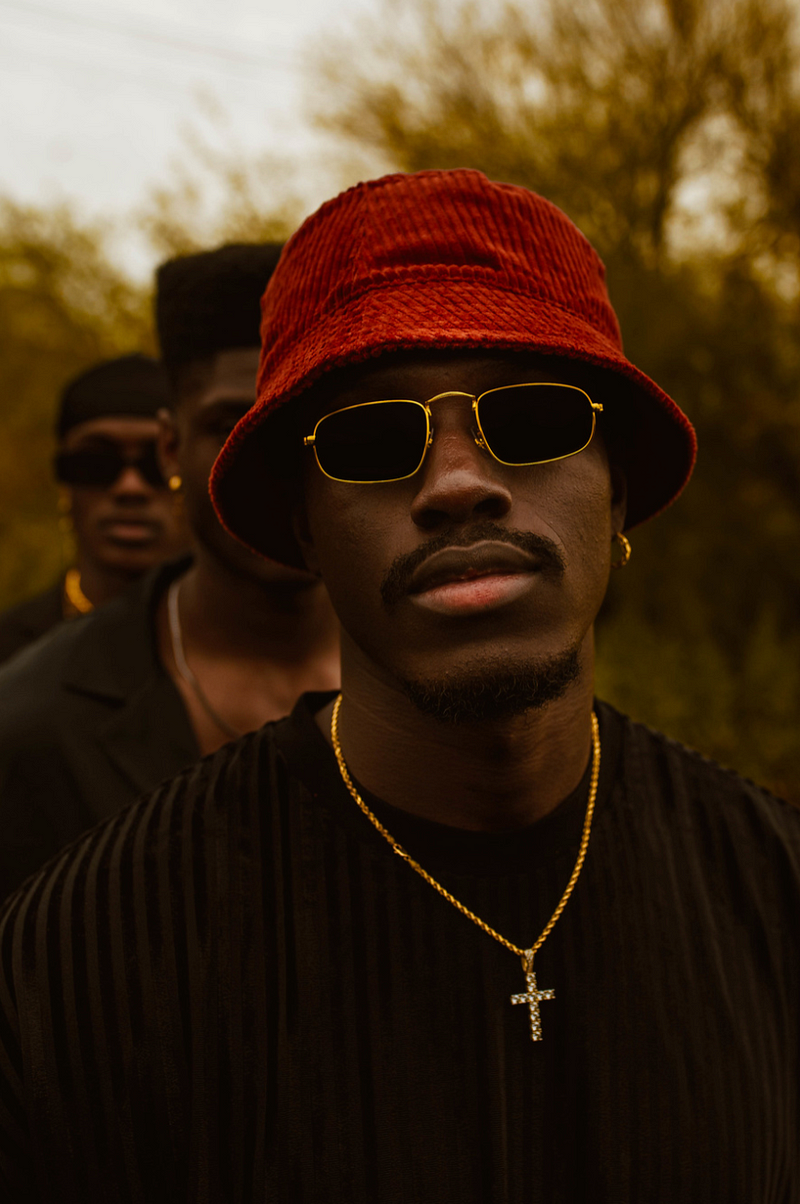
What are you most looking forward to photographing post COVID and what’s up next for you?
I‘m looking forward to educating. I really want to start to host in-person photography workshops where I can coach young women who want to get into photography and find their visual voice. I have been teaching virtually, but it’s not the same as being able to connect with people in person.
I want to host in-person workshops and provide the education that I wish I had. When I started out in photography, I went to YouTube and the majority, if not all, of the photographers I learned from where white. I didn’t really see any Black photographers teaching and I want to fill in that space. It’s necessary.
Thank you for sharing, Idara!
To see more of Idara’s work, visit her website and follow her on Instagram.
Interested in joining our community of photographers and contributing to Noun Project? Submit your photos and explore our guide to creating authentic, inclusive images.
Click here to download FREE photo shoot production document templates.
Plan your photo shoots out for the year with our free monthly photo shoot guide.
For more photography tips, check out our blog.
Sign up for our photo newsletter to make sure you never miss out on our photography content.



